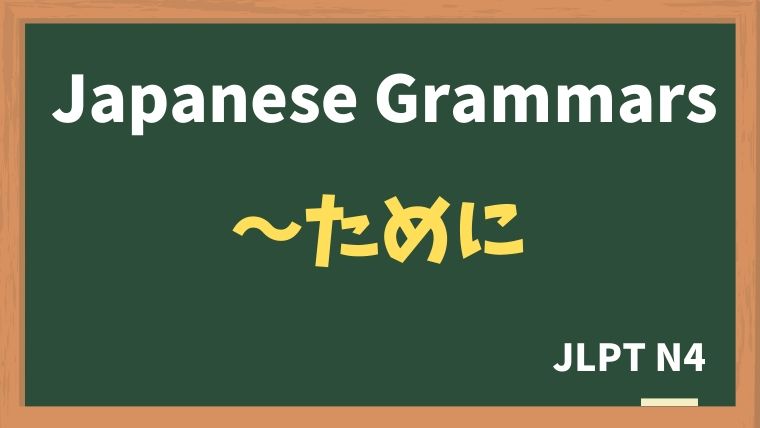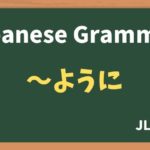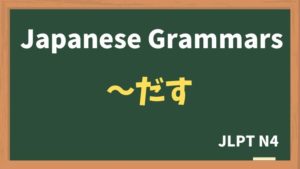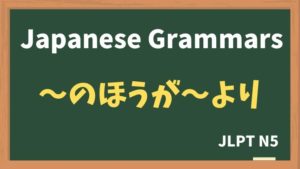
Contents
Explanation:〜ために
fa-check-circleMeaning
"in order to"
Used to indicate purpose or reason for an action. It connects an action or event to its goal, or to explain why something is done. Depending on the context, it can express either "in order to" or "for the sake of."
fa-check-circleForm
V(dictionary form) + ために
Nの + ために
fa-check-circlePoints
- Expresses Purpose or Goal: "〜ために" shows the purpose or aim of an action, often translated as "in order to."
- Indicates a Reason: It can also indicate the reason for something, often translated as "for the sake of" or "because of."
- Noun and Verb Use: "〜ために" can follow both nouns and verbs.
fa-check-circleJLPT Level
N4
fa-check-circleNote
① Verbs that include volition is used.
② V1 ために V2, V1 and V2 in this structure take the same subject.
Sample sentenes
来年 日本で 働くために 今 日本語を 勉強しています。
I study Japanese in order to work in Japan next year.
漢字を 覚えるために たくさん ノートに 書いて 練習します。
I will practice writing many kanji characters in my notebook in order to memorize it.
次の 試合で 勝つために 毎日 5時間 練習しています。
I practice 5 hours everyday in order to win the next match.
家族の ために がんばって 働きます。
I will work hard for my family.
健康の ために 毎日 野菜を 食べています。
I eat vegetables everyday for my health.
面接の ために 新しい スーツを 買いました。
I bought a new suit for my interview.
Vocabulary
| Japanese | English |
| おぼえる | to memorize |
| しあい | game / match |
| つぎ | next |
| れんしゅうする | to practice |
| けんこう | health |
| めんせつ | interview |
Comparison
1. "〜ために" vs. "〜ように"
"〜ために" expresses purpose (doing something in order to achieve a goal).
"〜ように" is often used to express hope or intention, and is less direct.
Example:
合格するために、毎日勉強します。
(I study every day in order to pass.)
合格できるように、毎日勉強します。
(I study every day so that I can pass.)
2. "〜ために" vs. "〜から"
"〜ために" expresses a reason related to purpose or benefit, while "〜から" is more straightforward and casual, simply giving the reason or cause.
Example:
将来のために、今 がんばっています。
(I’m working hard now for the sake of the future.)
将来が 心配だから、今 がんばっています。
(I’m working hard now because I’m worried about the future.)
Similar Sentence Pattern







